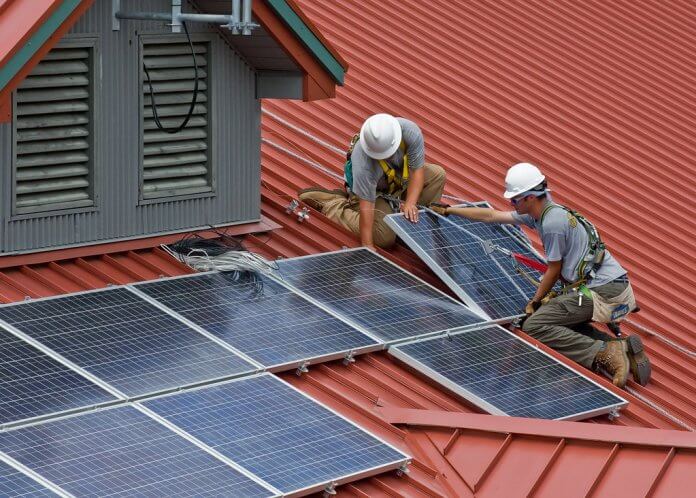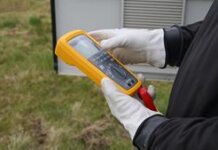Between executive stay-at-home orders, social distancing requirements and supply-chain delays, coronavirus is having a significant impact on the U.S. solar industry. Now, there is yet another issue to be added to the industry’s already-full plate: solar permitting delays.
Will the pandemic be the catalyst that building departments need in order to make the switch to online solar permitting, which would actually benefit the solar industry in the long run?
Before coronavirus, solar permitting was already a bit of a mess. Because permitting requirements vary between jurisdictions, the lack of uniformity has made it difficult to track how building departments are reacting to the coronavirus. It is evident, however, that authorities having jurisdiction (AHJs) with online processes established prior to the pandemic were better equipped to handle the “new normal” presented by COVID-19.

On the other hand, jurisdictions that didn’t have online processes in place are finding themselves in a very different situation. AHJs working with paper applications suddenly found themselves having to sort out new processes in order to comply with the new government mandates, which varied from scheduling appointments for application drop-offs and requiring applications to be submitted via mail, to switching to a digitized permitting process.
Some building departments are taking other measures, such as only reviewing applications for essential projects or only accepting applications but not issuing new permits. Some AHJs have closed altogether. Due to the variations in the normal solar permitting process, there is also great variation in the wake of coronavirus; and it is taking a toll on solar installations.
Solar permitting changes caused by coronavirus are increasing the amount of time it takes between an installer filling out an application and when they receive their permits, which is seriously delaying when projects can be installed. Even though solar is a great investment for homeowners, permitting delays increase the likelihood of a customer canceling their installation. Between stay-at-home orders and a looming recession, installers are already having a hard time acquiring new projects; these additional permitting delays could be life or death for some residential solar installers.
If a solar system is being installed in a jurisdiction that already has online permitting, it is likely there won’t be many additional delays to the permitting process. However, any project being installed somewhere that previously relied on paper permitting will see delays, as it will take additional time for mail-in applications to be shipped. Though shipping delays may only tack on a few extra days, it might just be enough time for a homeowner to reconsider the project.
The learning curve associated with an AHJ changing their permitting process will also cause delays, as reviewers will have to adjust to their new processes. Again, even if this adds just a handful of days to the process, that delay could be detrimental to the solar project. Some AHJs might also be open for fewer hours, further delaying solar permit approvals.
Solar installers will face the longest delays in jurisdictions that are completely closed. The delays in these areas will extend well beyond the pandemic, as these jurisdictions will have a backlog of applications and projects to clear out once they open. Because there is no clear reopening date for these areas and no telling when they will get through their backlog of projects, there is no way of knowing when solar installations in these jurisdictions can be finished.
Despite the fact that permitting delays caused by coronavirus will negatively impact solar installers in the short and medium term, it could actually lead to long-term positive change for the solar industry. The pandemic has shown AHJs that online permitting is the way of the future and has primed many of them to be willing to make a permanent switch to a digitized solar permitting process.
So how will the coronavirus pandemic get us to streamlined online permitting? The AHJs that have switched online because of the pandemic may be inclined to permanently switch to digitization, as they’ve already had a taste of the benefits. Not only does it take much less time than traditional paper permitting, it’s also safer from a public health perspective, which is something AHJs need to consider moving forward as pandemics become more common in the future.
As more jurisdictions realize the benefits of online permitting, they may also catch onto the benefits of instant solar permitting, which is already in place in some areas, such as Las Vegas. With instant permitting, a solar installer answers questions via an online form, and pending qualification, they will receive their permits that same day.
Instant solar permitting allows AHJs to allocate their resources more effectively, as there is no need for someone to be reviewing simple solar applications. This is especially useful in the post-pandemic landscape, where many AHJs will have several backed-up projects they must complete.
The Solar Foundation, in conjunction with the National Renewable Energy Laboratory, has created the SolarAPP, which is free online solar permitting software for AHJs. The goal of the SolarAPP is to decrease the price of solar installations through simplified permitting. Right now, permitting and inspection costs account for about $7,000, or $1.00 per watt, of the total cost of the average residential solar installation. By implementing software like the SolarAPP, AHJs would benefit from a reduced workload, with solar installers seeing lower prices.
With AHJs being more open to online solar permitting in the future, we could see a huge change in the solar permitting landscape. This would decrease solar prices and potentially increase the number of projects solar installers can take on. Despite coronavirus, solar growth is expected to continue in the long term – potentially growing even more because of it.
Catherine Lane is a researcher and content specialist at SolarReviews, a website that provides unbiased assessments of solar installation firms, modules and other products. She has a strong interest in issues related to climate and sustainability, which led her to pursue a degree in environmental science at Ramapo College of New Jersey.




